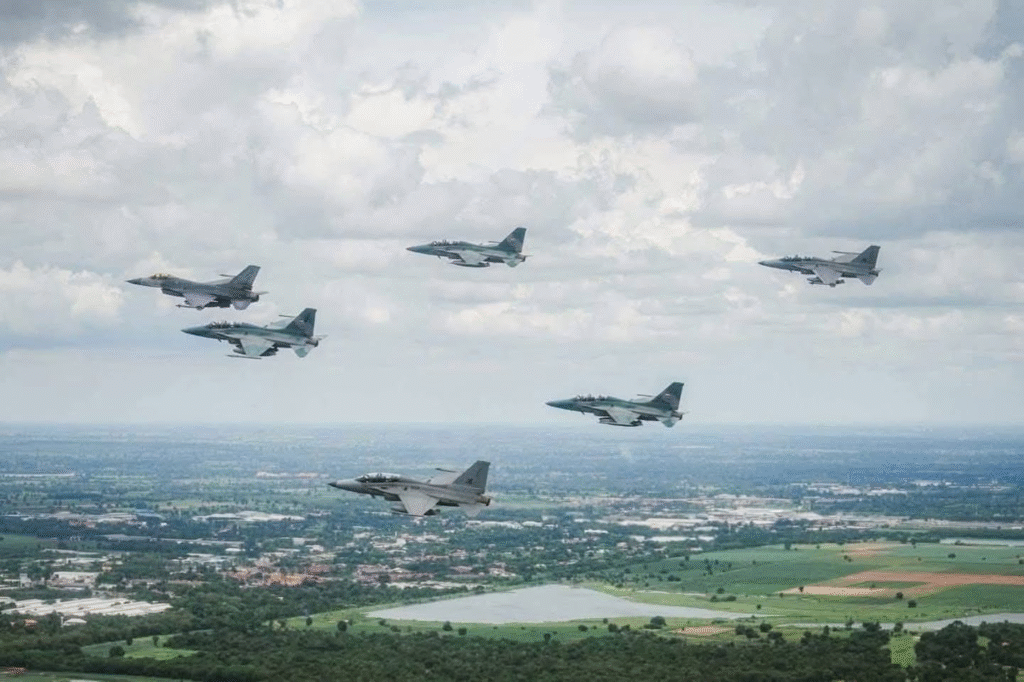
Thailand-Cambodia Clash: The long-standing friction between Thailand and Cambodia has escalated into one of the most severe confrontations in recent years. A series of landmine explosions, border clashes, and diplomatic expulsions have reignited tensions between the two Southeast Asian neighbors, drawing international attention to their fragile relations.
Key Highlights of the Conflict
- Landmine Blasts: Multiple Thai soldiers injured, with accusations of newly laid landmines.
- Military Action: Thailand launched airstrikes and shut down border crossings.
- Diplomatic Fallout: Both nations recalled ambassadors and issued official protests.
- Historical Disputes: Long-standing border conflicts dating back decades.
- International Concern: Calls for peaceful negotiation are rising amid fears of prolonged conflict.
What Sparked the Latest Thailand-Cambodia Clash?
The current escalation began when three Thai soldiers were injured after one of them stepped on a landmine in a contested border area. The incident, which resulted in one soldier losing his foot, occurred along paths that both countries had previously agreed to keep safe from explosives. Thai authorities claim that these mines were newly laid, breaching mutual agreements and threatening peace in the region.
On Wednesday, the situation worsened when four additional Thai soldiers were wounded by another landmine blast. Thailand asserts the incident took place in Ubon Ratchathani province, whereas Cambodia insists the explosion occurred within its Preah Vihear province, further complicating the dispute.
Thailand’s Military Response and Diplomatic Actions
In retaliation, Thailand launched an airstrike on Cambodian military posts, marking a significant escalation of military action. Following the attack, the Thai government closed all northeastern border crossings with Cambodia, recalled its ambassador, and expelled the Cambodian ambassador from Bangkok. Acting Prime Minister Phumtham Wechayachai confirmed that the Foreign Ministry has lodged an official protest, warning of “further necessary measures” if the tensions persist.
The Thai Army has also accused Cambodia of violating the Ottawa Treaty, an international agreement prohibiting the use and production of anti-personnel landmines. According to Thai officials, the landmines responsible for the recent injuries were Russian-made and not part of the Thai military arsenal.
Cambodia’s Strong Denial
Cambodia has categorically rejected Thailand’s allegations. According to Lt. Gen. Maly Socheata, a spokesperson for Cambodia’s Defense Ministry, the landmine explosions occurred on Cambodian soil. He accused Thailand of breaching a 2000 bilateral agreement that governs military patrol routes along disputed border zones.
Cambodia further dismissed claims of newly planted landmines, citing the country’s historical legacy of unexploded ordnance from decades of civil war (1970–1998). Since the conflict ended, over 20,000 Cambodians have been killed and nearly 45,000 injured due to leftover explosives, although fatalities have significantly decreased in recent years.
The Historical Rivalry Behind the Conflict
The Thailand-Cambodia border has long been a flashpoint for disputes, with historical and nationalist sentiments fueling tensions. A recent flashpoint was the armed confrontation on May 28, which left one Cambodian soldier dead. The incident further strained diplomatic ties, which were already deteriorating due to domestic political developments in Thailand.
Former Thai Prime Minister Paetongtarn Shinawatra was suspended from office last month after a leaked phone call with Cambodia’s former Prime Minister Hun Sen, in which she allegedly criticized her country’s military. This event added a political dimension to the border conflict, deepening mistrust between the two nations.
What Lies Ahead for Thailand and Cambodia?
Efforts to defuse the crisis remain complicated by growing nationalist sentiments in both countries. While diplomatic channels remain open, the latest military actions — including Thailand’s airstrike and ambassador expulsions — suggest that tensions could intensify if neither side backs down.
Regional organizations, including ASEAN, may step in to mediate and prevent further escalation, but the deeply rooted historical grievances and territorial disputes make a swift resolution unlikely.
